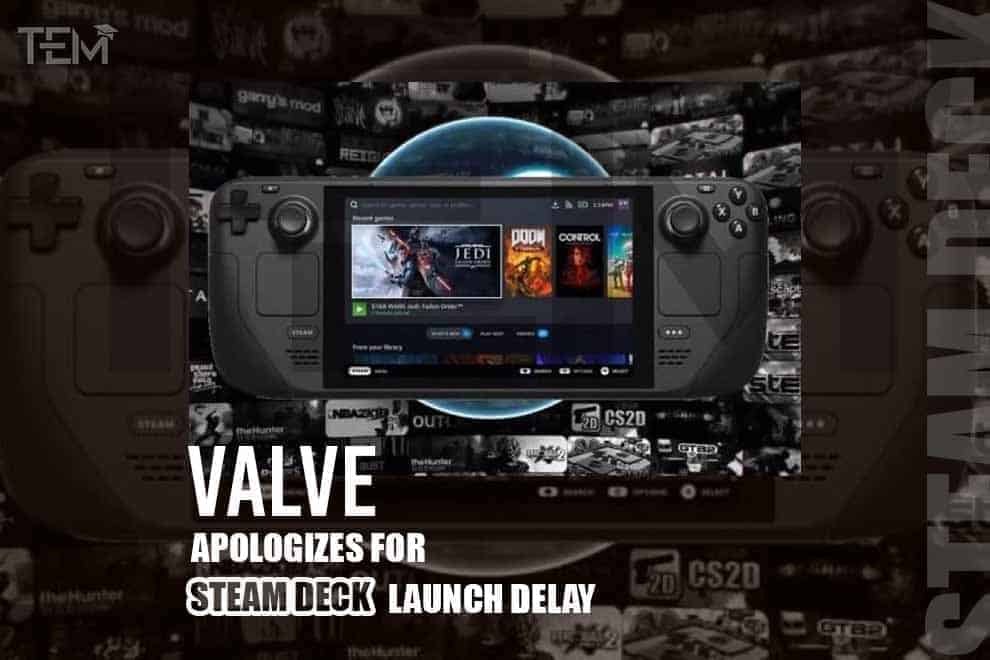Key Highlights:
- Valve has announced a delay in the release of the Steam Deck portable gaming device.
- Valve has verified that everyone who saved a position in line to preorder a Steam Deck will keep their spot.
- Based on our updated build estimates, Steam Deck will start shipping to customers in February 2022.
Valve delays the launch of Steam Deck
Valve has announced a delay in the release of the Steam Deck portable gaming device. It was originally scheduled to begin shipping in December, but due to “global supply chain difficulties,” units will not begin delivering until February 2022.
“We did our best to work around the global supply chain issues, but due to material shortages, components aren’t reaching our manufacturing facilities in time for us to meet our initial launch dates,” Valve said.
“Based on our updated build estimates, Steam Deck will start shipping to customers in February 2022. This will be the new start date of the reservation queue—all reservation holders keep their place in line but dates will shift back accordingly. Reservation date estimates will be updated shortly after this announcement.”
Valve stated that it will continue to “improve reservation dates based on the current timeline,” and that it will provide updates when new information becomes available. Shipping timeframes will be displayed on the Steam Deck website based on your purchase date (Steam Deck reservations placed now are presently slated to begin shipping somewhere in the second half of 2022).
Valve has verified that everyone who saved a position in line to preorder a Steam Deck will keep their spot: “Everyone has been shifted back to the new timeline, and you will still receive a message to make your purchase in the same order you reserved.”
The tech industry suffers due to chip shortage
The global supply chain crisis has had a significant influence on the technology industry. Next-generation consoles and Nvidia 30-series graphics cards have been notoriously difficult to obtain for nearly a year, BMW announced last week that some new cars will lack touchscreens due to chip shortages, and even Apple has felt the pinch, reporting a $6 billion loss due to supply chain constraints in its most recent quarter.
Chip shortages aren’t the only issue Valve is addressing ahead of the Steam Deck’s release; the company is also attempting to ensure that developers flip any required switches and make any necessary tweaks to ensure their Windows games function on the Linux portable. The majority of the hard lifting is done by a Proton compatibility layer, although online multiplayer games may include anti-cheat software that has historically not worked well with Proton, and games may wish to embrace the Deck’s touchscreen, joysticks, and buttons as well.
Valve launched a “Verified” program last month for games that perform well on Deck and has collaborated with leading anti-cheat tools Easy Anti-Cheat (EAC) and BattlEye to provide support. EAC owner Epic Games claims that turning on support is as simple as a few clicks on the developer side, while Valve claims that BattlEye is as simple as writing an email.
Despite this, several of the most prominent Steam game creators have yet to express their support.
Valve is hosting a virtual development event for the Steam Deck, where best practices will be shared and developer questions will be answered.
Also read: Effective Cybersecurity Tips for Students for Safe Browsing










